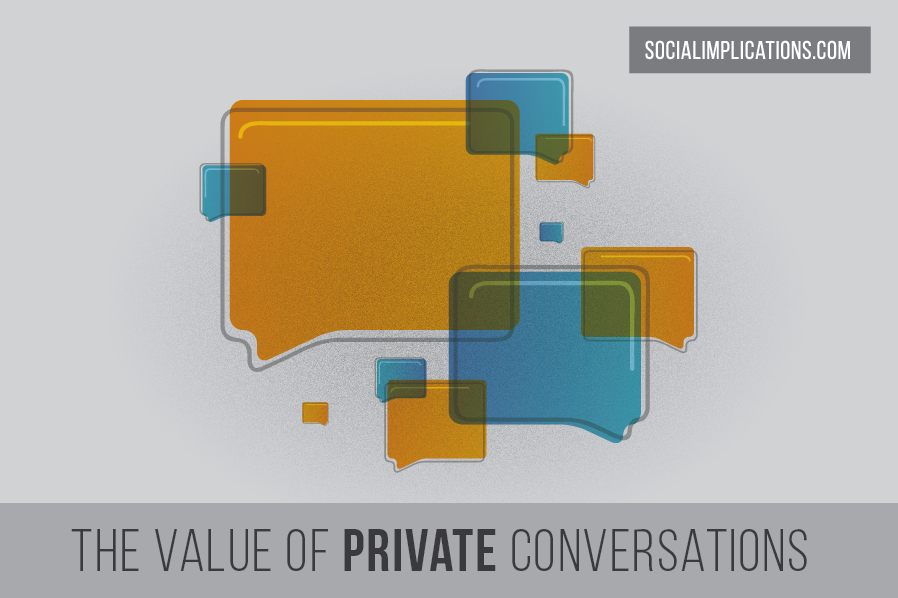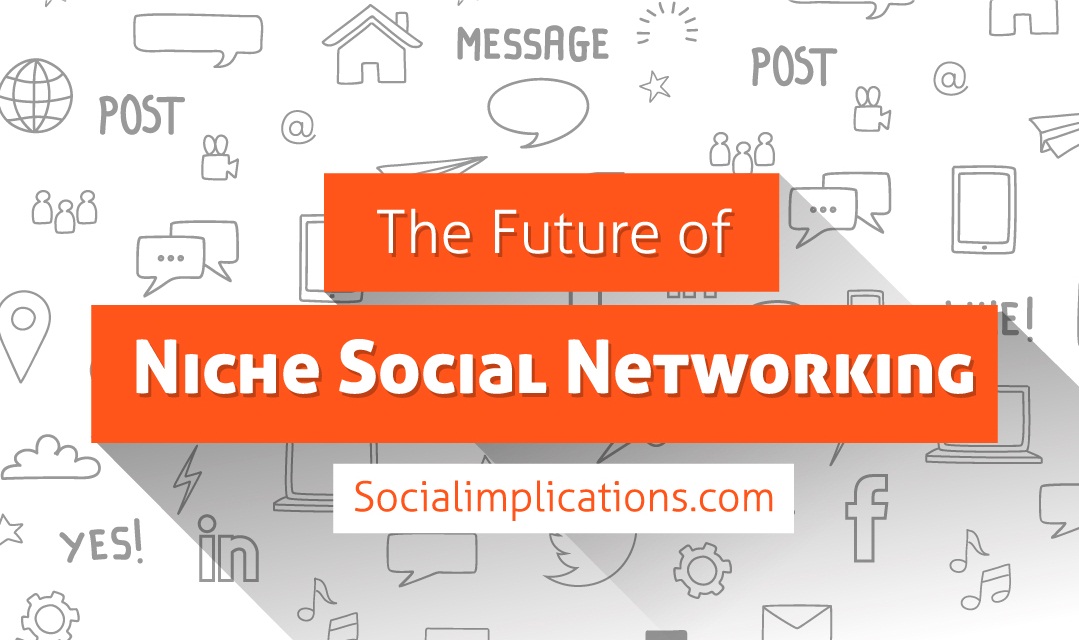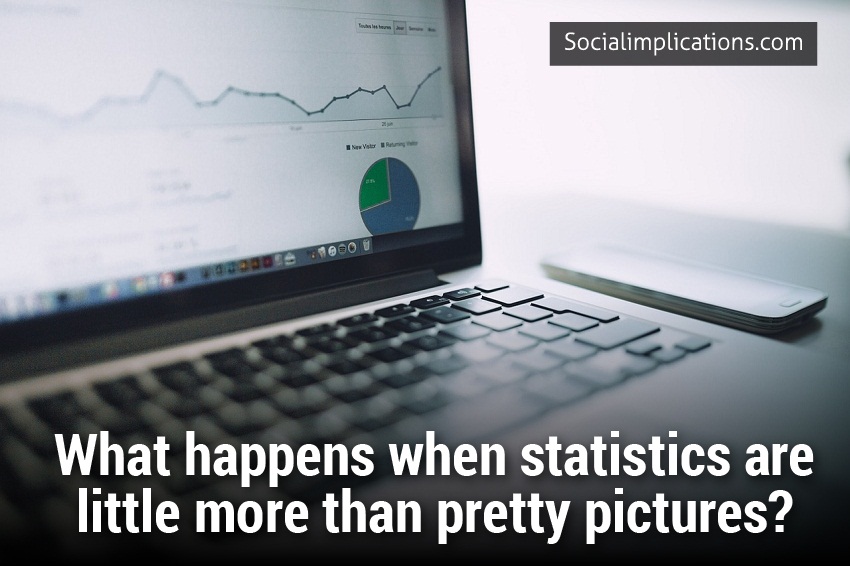
Sometimes it feels as though online privacy is a thing of the past. And while years in the PR world made me well aware of the value of transparency, I still find that sad. We have social networks selling off our data to advertisers. We have ISPs selling only semi-anonymous browsing histories to analytics sites. And now we have Google trying to consolidate our data so they can decide who we are and what we want before we have a chance to make those decisions for ourselves.
I’d like to think there’s still a place for user privacy on the Web. Actually, I know there is.
User Privacy in Social Media
For some absurd reason we seem to forget what “social” actually means these days. It doesn’t mean that we have to speak to the entire world (or even just our collective “friends”) every time we have something to say. Being social is about building relationships — not with an entire network at once, but with individuals.
One of the best ways to build a strong relationship is to have good old fashioned one-on-ones. Stronger one-on-one communication can build better relationships, both personally and professionally. And that kind of communication relies on user privacy. It won’t happen if users have to constantly wonder who’s looking over their shoulder.
Why Private Conversations Are Important (Even in Social Media)
The ability to control our own level of privacy on the Web is about even more than building personal relationships. Here are some other situations where privacy protection can make or break the social nature of communities:
- If creative professionals can’t enjoy some semblance of privacy on the Web, many could be less likely to share their words, music, or art. Anonymity, or at least control over who sees what early on, can help them move past fears of rejection.
-

How much should you really share publicly via social media tools? – Credit: BigStockPhoto.com With social media profiles being tied to all sorts of online stores and services (and members of a network being notified of what you’re buying, watching, or listening to), people may back away from newer sites and technologies. For example, I personally stay away from music sites that push me to share what I’m listening to and when, and I find it distasteful when I see repeated pop-ups on Hulu nagging me about sharing my viewing habits with people who happen to know me through another website. And frankly, most people probably don’t care what we’re watching or listening to. This level of “open” sharing decreases the value in social interactions, implying that a view or listen is some kind of endorsement. Or at least that’s how I feel when people in my network bombard me with a million and one updates about everything mundane in their lives.
- We all make mistakes. Chances are good you’ve done something stupid during your lifetime, quite possibly when you were young. At that time did you honestly believe that relatively small mistakes could come back to haunt you decades down the road? For kids today, they just might. We’ve gotten second chances. And young people today deserve the same opportunities to learn and grow without the world watching every little thing they do. I feel it’s time we put more emphasis on teaching them what shouldn’t be shared publicly on social media sites and less energy as a society convincing them that privacy is (or should be) a thing of the past.
When do you think social networking should remain private, whether conversations in private groups or between individuals? How do you feel about social media sites monitoring even private conversations in an effort to “get to know you” so they can sell you out to advertisers even more than they already do? Or do you think all social media interactions should be public? Share your thoughts in the comments.














Outstanding post, Jenn. I use one of my Dad’s southernisms to describe how it feels trying to regain your privacy – it’s like closing the barn door after the horse has escaped..
I just read from someone I follow that job applicants (and athletes) are being asked to hand over their FB passwords. If that’s true, all I can say is Are you kidding me?
I do think that some people don’t think about all the ramifications of posting some of the things they do, but, like you said, who among us hasn’t done something we later regretted.
As for the monitoring to sell me something, it creeps me out nearly every time. It screams at how little privacy there is. Don’t try to tell me it’s so you can deliver better service for my browsing pleasure. When I want your help, I’ll ask for it.
Here’s my litmus test. If you wouldn’t do it in person, what makes it okay for online?
Thanks Cathy.
I heard about the FB password thing a while back. I sure hope that’s not still going on. That’s beyond insane.
I don’t even get the advertising aspect half the time. It sure doesn’t work on me. I’ve been shopping for things for my wedding recently. I visited an online store to check out some shoe options. Now I can’t go anywhere online without seeing ads for that stupid site. And they’ve lost any chance of me doing business with them as a result. It’s intrusive. And I don’t want to see shoe ads when I’m browsing completely unrelated websites. That’s spammy. Google gets peeved when site owners link to unrelated advertisers, but they’re doing it all over the place thanks to this kind of targeting. Hypocrites, as they so often are. Heaven forbid you have two people using the same computer. I’m sure my fiance would love those ads even more. Or maybe I’d be looking at gaming ads all day. Seriously, it baffles me.
What a great post, you are so eloquent with your thoughts and opinions. I agree that it is super creepy the way our posted content becomes searchable by advertisers. My friend recently changed her status on Facebook to ‘engaged’ and she said immediately her Facebook became plastered with ads for all things wedding related. Not only does it seem like an invasion of privacy but it also makes so many assumptions about what engaged people are looking for!